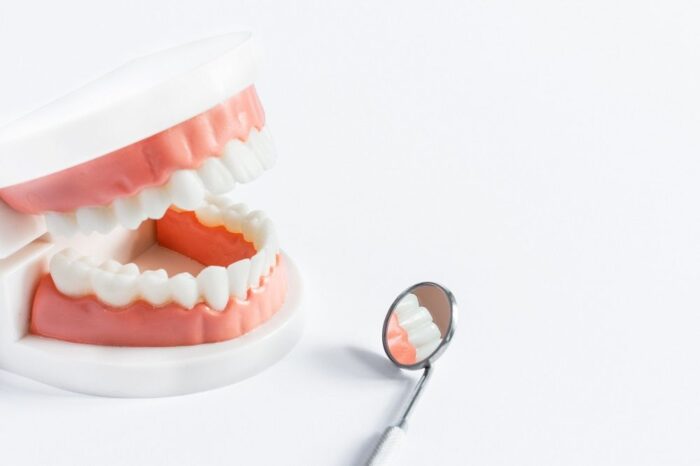Picture this: every time you take a sip of your beloved coffee, you get a sharp pain in your teeth. Or, you take a bite of your favorite ice cream. But, you feel pain shoot through your teeth. If this happens to you, you could have sensitive teeth. Tooth sensitivity can be a common dental problem.
Sensitivity hurts and affects your ability to enjoy everyday activities. If you have sensitive teeth, you will want to find the cause and explore the best solutions.

The Source of Pain
Tooth sensitivity occurs when the middle layer of your teeth becomes exposed. Dentin contains small tubes that connect to the nerve endings of your teeth. Once exposed, external stimuli can cause pain. For example, hot, cold, sweet, or acidic foods and drinks may cause pain.
Find the Culprits
There are several things that can cause tooth pain.
Tooth Wear: Gradual enamel erosion due to aggressive brushing, acidic foods, or teeth grinding can lead to exposed dentin and sensitivity.
Gum Recession: Gum disease, improper brushing techniques, or aging can also cause gum recession. This exposes the roots of the teeth and leads to pain.
Tooth Decay: Cavities can cause sensitivity when they reach the dentin layer.
Dental Exams: Sensitivity can occur after certain dental procedures. For example, you may have temporary sensitivity from fillings, crowns, or teeth whitening.
Finding Relief
If you have sensitive teeth, there are ways to reduce your discomfort.
Desensitizing Toothpaste: Toothpaste for sensitive teeth can help reduce pain over time. These contain agents that block the nerve endings and provide relief.
The Right Toothbrush: Using a soft-bristled toothbrush with proper brushing techniques can help prevent enamel erosion and minimize sensitivity.
Avoiding Acid: Limiting acidic foods and drinks can prevent enamel erosion and reduce pain.
Sedation for Pain
If your tooth sensitivity is related to a dental procedure, sedation may be an option to manage pain and anxiety. Sedation dentistry involves the use of medication to help patients relax during dental treatments.
Nitrous Oxide: Also known as “laughing gas,” nitrous oxide is a safe and mild form of sedation. It can help patients feel calm and relaxed during procedures. It is a light form of sedation that can help you get through your exam.
Oral Sedation: Oral sedation involves taking an oral medication the dentist prescribes before the procedure. This type of sedation induces a deeper state of relaxation and can be tailored to your needs.
Intravenous (IV) Sedation: IV sedation allows for a higher level of sedation. This is also suitable for more complex dental procedures or patients with severe dental anxiety.
Sedation can help reduce anxiety about dental exams. This may include procedures for sensitive teeth. It also helps patients go through dental care while relaxed.
Talk to Your Dentist
If you have sensitive teeth, you should talk to your dentist. They will assess your oral health. Then, they will help identify the cause of your sensitive teeth. Together, you can find the best option for you. They can also discuss sedation if you have anxiety during dental procedures.
